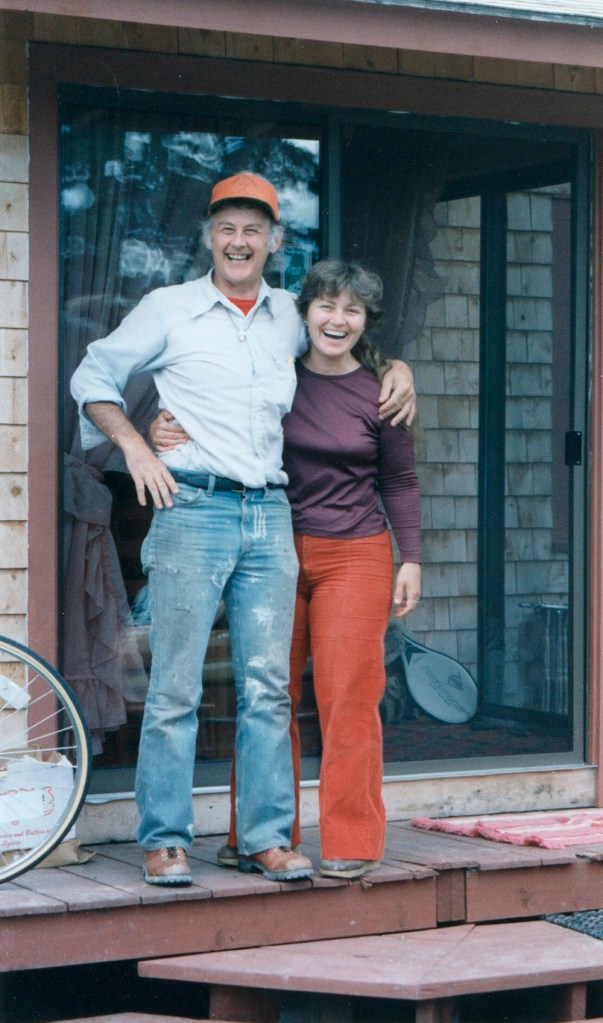On a moonlit night in May of 1992, state and county law enforcement officers broke down the door at a remote cabin in western Maine and shot Katherine Hegarty, killing her.
The shooting of Hegarty, who had fired a rifle toward a group of campers earlier in the day, led to public protests in and outside of Maine. They included weekly demonstrations in Jackman, near the cabin, and rallies elsewhere calling for tougher rules for how police could use deadly force.
The public outcry prompted the Maine Legislature to pass a law that upgraded police training and set minimum standards for the use of deadly force.
The action was known as the Hegarty Law.
The shooting also resulted in a wrongful death lawsuit by Hegarty’s husband. The suit was dismissed on appeal in 1995.
Many facts of the case have been forgotten over the years. But a summary of the incident, recounted in the decision by the U.S. Court of Appeals, First Circuit, shows police knew that Hegarty suffered from mental illness and substance abuse. The strategy they developed to apprehend her was based on that awareness, and the law-enforcement standards of the times.
This is what happened:
A group of people was camping, with permission, on paper company land near Jackman. To reach their campsite, they drove past a cabin owned by Katherine Hegarty.
That evening, Hegarty, who was alone in her cabin, saw the campers returning and became angry, saying they were trespassing on her property. She grabbed a rifle and fired several rounds from the porch in the direction of the campers.
Eventually, she allowed them to leave. They drove to a truck stop and called police.
One Maine State Police trooper and three Somerset County sheriff’s deputies responded. The officers were familiar with Hegarty. They knew she was a licensed Maine Guide and an accomplished hunter who kept several guns in her cabin.
They also knew she had “a history of emotional instability,” according to the court document. This history included a “nervous breakdown” that required sedation and involuntary hospitalization, two arrests for operating under the influence, and an assault against the state trooper at his home after her first arrest.
“For those reasons,” the court document states, “the officers concluded that they should arrest Katherine immediately, without obtaining a warrant or informing her of their true intentions until after she had been restrained, for fear that she would become violent.”
In developing their arrest plan, the officers worried that Hegarty would be waiting for them. So after midnight, they approached the cabin on foot and made attempts to coax her outside. When they got no response, one officer shined a flashlight in the bedroom window and saw Hegarty lying on a bed, holding a rifle.
In the verbal exchange that followed, Hegarty told the police to leave her property. They replied that they were investigating a report of campsite burglaries and, fearing for her safety, wanted her to come outside and talk. She declined.
When police next looked inside a window, they saw Hegarty without a weapon, and decided that was the moment to apprehend her. One deputy began breaking in the front door. As that happened, another officer saw Hegarty pick up a rifle and point it toward the door.
The court summary concludes: “As she continued to raise the rifle in their direction, the officers ordered her to drop it. Katherine paid no heed and was fatally wounded by the officers before she could fire a shot.”
Copy the Story Link
Send questions/comments to the editors.




Success. Please wait for the page to reload. If the page does not reload within 5 seconds, please refresh the page.
Enter your email and password to access comments.
Hi, to comment on stories you must . This profile is in addition to your subscription and website login.
Already have a commenting profile? .
Invalid username/password.
Please check your email to confirm and complete your registration.
Only subscribers are eligible to post comments. Please subscribe or login first for digital access. Here’s why.
Use the form below to reset your password. When you've submitted your account email, we will send an email with a reset code.